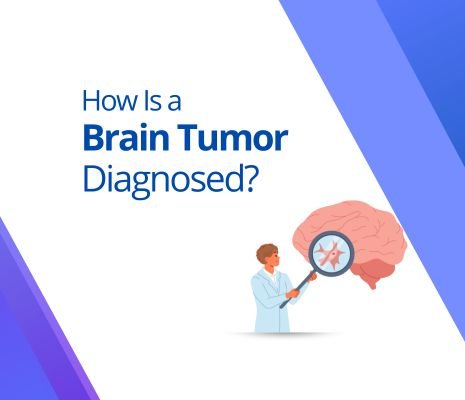If a person is having unusual symptoms like frequent headaches, vision problems, memory loss, fits (seizures), or difficulty in walking or speaking, doctors may suspect something is wrong in the brain. One possible cause could be a brain tumor.
Here’s how neurosurgeon usually find out if someone has a brain tumor:
Step-by-Step Diagnosis in Simple Terms
1. Doctor Checks Your Symptoms
First, the doctor will ask:
- What problems are you facing?
- When did they start?
- Are they getting worse?
Then, they may do a physical exam and a neurological exam to check your:
- Balance
- Strength
- Reflexes
- Vision and hearing
- Memory and coordination
2. Brain Scans (Imaging Tests)
If the doctor feels something is not right, they will ask for a brain scan.
MRI (Magnetic Resonance Imaging)
This is the most common and best test. It creates detailed images of your brain using a big machine. You lie down inside the scanner, and it shows if there’s any unusual growth like a tumor.
CT scan (Computed Tomography)
If MRI is not possible or available, a CT scan may be done. It uses X-rays to take images of the brain. It’s faster and helpful in emergencies.
3. Other Tests (If needed)
Biopsy (Tissue Test)
If a tumor is seen on the scan, doctors may take a small piece of it (biopsy) to check under a microscope. This helps them know:
- Is it cancerous or not?
- What kind of tumor is it?
- How fast is it growing?
The biopsy is usually done during surgery or using a special needle guided by scans.
4. Blood Tests & Eye Checkup
These don’t confirm a tumor but help rule out other causes or check for effects of the tumor. An eye doctor might also check the back of your eyes to see if there’s pressure in the brain.
Simple Process:
- First, your symptoms are checked.
- Then, a brain scan like MRI or CT is done.
- If a tumor is seen, a biopsy may be needed to find out more.
When to see a neurosurgeon:
If you or someone you know has unusual symptoms like:
- Repeated headaches (especially in the morning)
- Seizures (fits)
- Sudden personality or memory changes
- Weakness or numbness
- Blurred or double vision
Don’t ignore it. Early diagnosis can save lives.















